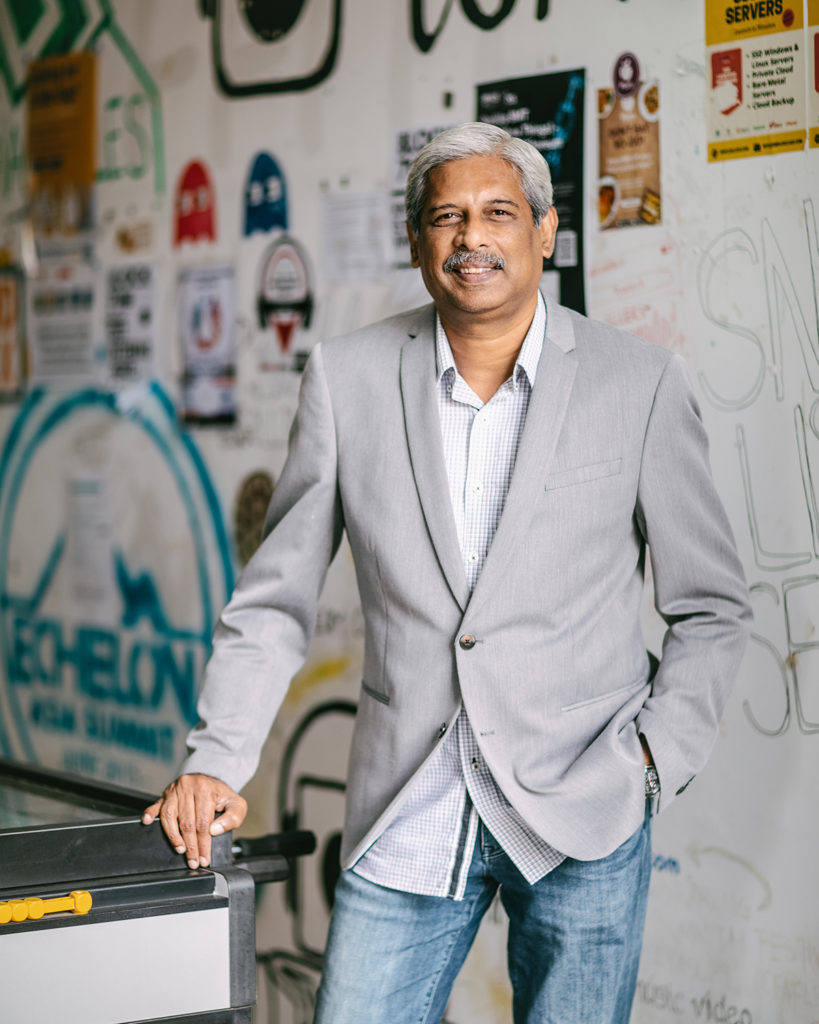
CEO, CIO Academy Asia
Former Panel Member for NYLA 2016
“When I started my career in technology in 1983 at MINDEF, Singapore was only just exploring the potential of technology in government to change the way things were being run,” says P. Ramakrishna (affectionately known as Rama), “We were fledglings of what was just born, and there was a lot of influence from the role models of Silicon Valley – Bill Gates and Steve Jobs.”
Influence has always been an intangible and complex notion. Despite being less defined, it was no less observable. Rama almost immediately attributes influence with the power of role modeling, noting how observable the right values, ambitions, and desires are in a person for any other to follow. But he is under no illusions – today, the nature of influence has evolved to include the digital sphere.
“Today anyone can be a role model to a youth. It all depends on what your aspiration is and who you look to as an example for you to follow. Is it the billionaire tech entrepreneurs who have made it big, like Jeff Bezos and Mark Zuckerberg? Or is it the YouTube product reviewer, or an Instagram model? Depending on your personal ambition, your idea of who your role model is will reflect what kind of influence you follow.”
The dual domains of influence are today more intertwined and complicated as ever. What happens in the digital world goes on to have real consequences in the physical world, both for good and for bad. But call it the nature of humans to seek the scandalous and unsavoury, or call it our tendency to put the spotlight on calamities more than celebrations: For every story of a National Serviceman going out of his way to help an elderly person, you read five stories of a road bully, or an unruly neighbour, or simply a screenshot of ignorance in the comments section – all with the intent to accuse, shame, or bully. Influence in the digital world is here to stay. But being technologically-savvy does not equate a higher quotient of emotional responsibility for this new measure of influence once afforded only to the chosen few, and now to the general population.
“It comes back down to values and education. We cannot exist in the digital world relying on regulation alone. Good values for manoeuvring this digital world, being mindful of their influence, this must be taught. This is why I have a lot of respect for what Halogen Foundation is doing. We have to build this into our curriculum, and even educate parents on what is being shared with their children, so that they can also teach the same things at home. Society has to play a part in the physical world in order for that to be translated to good practice in the digital world.”
Rama does not hesitate. Mentorship is a strong theme in his descriptions of how the youth can be positively influenced. And for a man who has spent 35 years in the field of technology to put weight behind work we must do in the physical world prior to the digital, we cannot ignore the responsibility that we in society have to impart the right values to the future leaders of Singapore.
